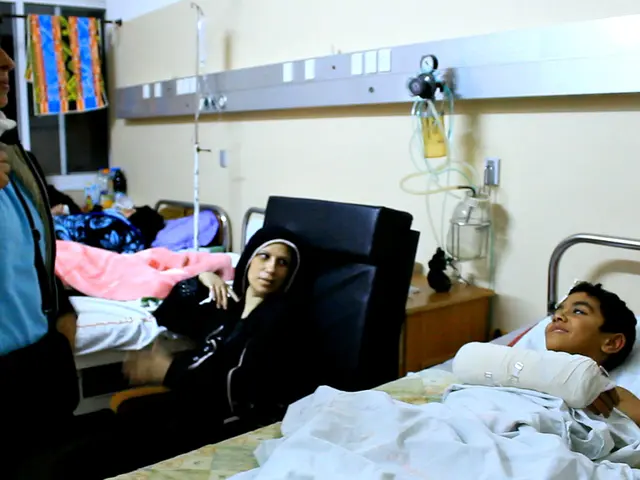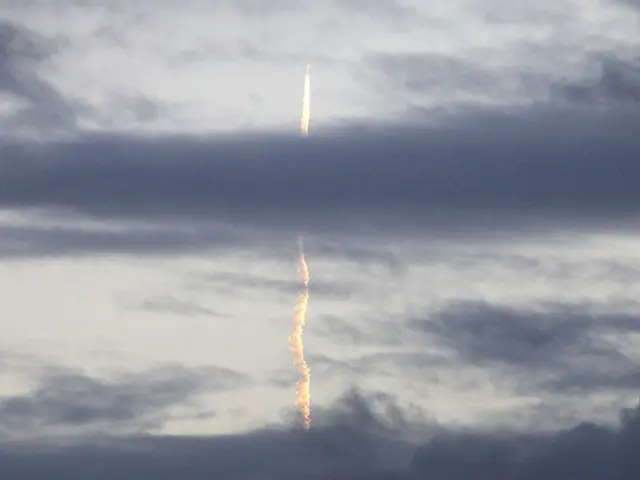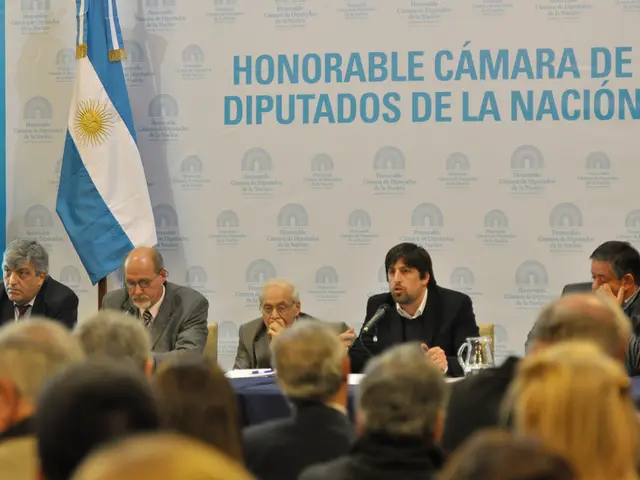Has the long-lasting military standoff between India and Pakistan finally come to a close?
Nations India and Pakistan reach consensus on an "instant" truce, following a series of deadly clashes.
In a surprising turn of events, India and Pakistan agreed to an immediate cessation of hostilities, following several days of devastating drone attacks, artillery fire, and missile strikes. U.S. President Donald Trump announced this ceasefire on Saturday, May 10, much to the general astonishment of the world.
"Following a grueling night of talks under American mediation, I am excited to announce that India and Pakistan have agreed to a COMPLETE AND INSTANT CEASEFIRE," Trump proclaimed on his Truth Social network, praising the two nations for their wisdom and keen senses. In Islamabad, Pakistani Foreign Minister Ishaq Dar confirmed Pakistan and India's acceptance of an immediate cessation of hostilities, as reported in local media outlets.
Concurring with the truce agreement, a government source in New Delhi affirmatively stated that the negotiations were carried out directly between India and Pakistan, despite U.S. Secretary of State Marco Rubio's prior statements suggesting otherwise. The agreement was reportedly the result of intense, in-depth discussions among Rubio, Vice President J.D. Vance, Indian Prime Minister Narendra Modi, and Pakistani Prime Minister Shehbaz Sharif, along with other high-ranking officials.
Escalating Violence in Recent Weeks
As neighbors born from a tumultuous partition in 1947 following British rule, India and Pakistan have earned a reputation for their inability to reconcile their differences peacefully. Despite pleas for caution from global communities fearing the tipping point, the two countries continued to ignore calls for restraint since mid-April.
It all commenced on April 22 when a shocking attack occurred at a tourist site in Indian-controlled Kashmir. Armed assailants brutally killed 26 civilians. India accused Pakistan of supporting the jihadist group they believe carried out the attack, an allegation that Pakistan vehemently denied.
The conflict reached an all-time high on Wednesday when India retaliated with strikes on several Pakistani cities, claiming to have eradicated "terrorist camps" and triggering a vicious cycle of strikes and retaliations. Even on Saturday morning, Pakistan announced it would launch its retaliation after seeing Indian missile strikes on military bases, one near Islamabad. According to the death toll provided by both sides, the hostilities have resulted in the loss of approximately 60 civilian lives.
Historical Context and Expert Analysis
The ceasefire between India and Pakistan in May 2023 was largely due to the intense international mediation, primarily by the United States, following four days of heightened aggression. This escalation included drone, missile, and artillery attacks. The conflict began with India launching Operation Sindoor on May 7, a retaliatory campaign against terrorist attacks that had claimed innocent lives. This operation intensified tensions, bringing the two countries to the brink of full-scale war [1][2].
The ceasefire was the result of extended talks mediated by the U.S., culminating in a halt to firing effective from 5 PM on May 10, 2023. Continued military alertness and hardline rhetoric from India, as well as expert warnings about the need for ongoing diplomacy, indicate that this truce is fragile and tentative. Failure to prioritize diplomacy over confrontation has prolonged the crisis, with regional and global powers initially hesitant to intervene [3].
In light of the historic ceasefire, political analysts have highlighted the significant role played by the United States in facilitating talks between India and Pakistan. This truce, announced on May 10, marks a critical turning point in the ongoing war-and-conflicts between the two nations, following days of devastating drone attacks, artillery fire, and missile strikes. The government of India concurs with this agreement, affirming that the negotiations were conducted directly with Pakistan, despite initial political speculations.








